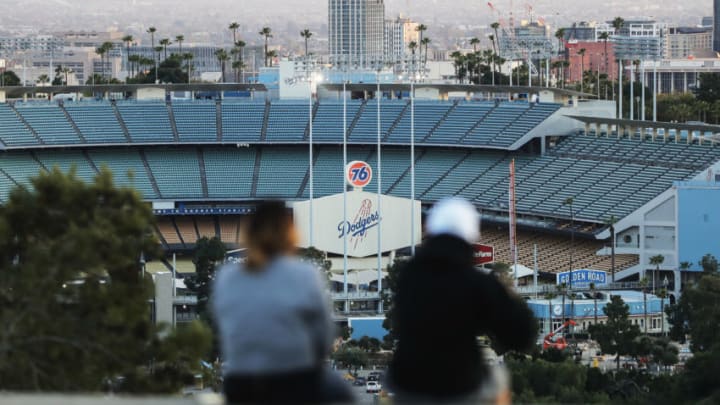2020 MLB Season: Through the owners perspective
By Bill Felber

Owners of the richest teams might be the biggest losers of the 2020 MLB season.
Put yourself in the shoes of team owners. How badly do you want to play the 2020 MLB season?
Since owners are business people, this is fundamentally a financial question. In a normal year, Forbes projects that the average MLB team would gross about $345 million, and be left with about $50 million in playing-around money once the essentials are dealt with.
More from Call to the Pen
- Philadelphia Phillies, ready for a stretch run, bomb St. Louis Cardinals
- Philadelphia Phillies: The 4 players on the franchise’s Mount Rushmore
- Boston Red Sox fans should be upset over Mookie Betts’ comment
- Analyzing the Boston Red Sox trade for Dave Henderson and Spike Owen
- 2023 MLB postseason likely to have a strange look without Yankees, Red Sox, Cardinals
But 2020 is not a normal year, and while nobody – including you or me – is quite sure how much revenues are going to take a hit, it’s certain to be a substantial one. The MLBPA is now proposing a longer season, which would increase owners’ expenses by pro-rating player salaries over a larger number of games.
And while owners might – probably would –recoup some of that via increased media value – nobody’s going out of the house these days so ratings should be good – you can basically write off ticket sales, parking, concessions and a substantial portion of normal brand sales…since nobody’s buying stuff, either.
Owners are reportedly poised to make a counter-offer involving a shorter 50-game season with pro-rated salaries. Since fewer games means less pay, the Players Union is expected to react unfavorably.
How much do owners stand to lose, and how badly do they want to play if it means losing that?
Related Story. 2020 MLB Season: The toughest in new proposal? No spitting. light
Those are the questions owners are wrestling with right now as they consider how to respond to the latest players’ proposal. And because the 30 club owners represent widely divergent perspectives and face equally divergent revenue projections if games are played, their responses are unlikely to be anywhere as unified as the Union’s response is likely to be.
Some of the game’s poorer teams – whose revenue derives largely from their share of national media – are relatively insulated from the financial impact of a shortened, no-fans season. Conversely the game’s richer teams, those whose valuation is more weighted toward market-generated revenues – those in the greatest jeopardy – may have the least incentive to take the field at all.
What follows is an analysis of the owners’ perspective of the negotiations. We’re going to look at where team revenues tend to come from, how much they are likely to be impacted assuming games are played, and we’ll also look at the diversity of those impacts.